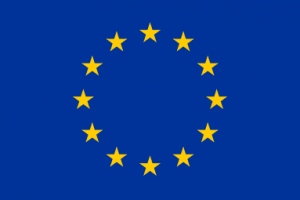What key competencies will be needed for student to address these challenges? How can we integrate future-oriented skills into science education?
Ideas and conversations sparked around those three questions at the first official meeting of Oxford Open Schooling Network (OOSN), on November the 3rd 2021. The event was hosted by Dr. Alison Cullinane and Dr. Olga Ioannidou and served as an introduction to FEDORA and the network’s aims and visions. Different stakeholders were invited to participate, including researchers in science education, scientists, secondary school teachers, professionals from informal learning spaces and science centres, and representatives of companies and charities. They meet and start working together to create a shared vision for science education and education in general and theorise possibilities for future orientations in science. The questions targeted participants’ views on future challenges, future skills, as well as ways of integrating these skills into science curricula.
After the interactive activity participants were encouraged to explain their views and discussed further needs, barriers and potential issues regarding the implementation of their ideas.
The network, that has been established and led by University of Oxford (which involves Professor Sibel Erduran, Dr Olga Ioannidou, Dr Alison Cullinane and Dr Liam Guilfoyle as the research team), its just at the beginning of its journey. The future steps includes a second meeting that will be held on January, production of teaching modules in February and completion of 1st implementation within June.
Continue to follow FEDORA’s website for news and updates on Open-schooling projects!
Themes of future, interdisciplinarity, languages and narratives in education were discussed at the first official Helsinki Open Schooling Network (HOSN) meeting, last September. Experts from different fields and backgrounds meet up and brainstormed lots of interesting ideas. Among those a special one emerged and was explored in depth: a science course module on the topic of carbon neutrality and the city of the future.
Over last spring, the Helsinki FEDORA team had worked hardly to recruit a diverse group of 12 experts into what would become the HOSN. Alongside the Helsinki FEDORA team it includes policymakers, researchers, university educators, teachers and one principal. They were initially invited to reflect on newest FEDORA materials on the ‘three blind spots’ and then meet at the first official meeting on 10th of September 2021. Although it was originally planned as a full-day workshop in the idyllic Helsinki archipelago, just as ferry timetables were matched with plans for the workshop, the regional covid rates began climbing, and an online seminar was agreed on instead.
A large number of ideas came up and after the meeting was concluded, the implementing teacher partners stayed to collect them and reflect on the existing practical constraints. Through this discussion, as we anticipated at the start of this article, a final idea started to take shape: an upper-secondary science course module centred on the topic of carbon neutrality and the city of the future. Planning this module is now underway, with the full HOSN commenting on the developing plans. The module will include experts coaching students to make sense of the complexity of topics like sustainability, energy transitions, urban planning and science-technology-society interactions. It will utilise future-oriented pedagogies developed within the I SEE project. As befits the complexity of the topic of the course, the process of its development has been nonlinear, with the diverse composition of the HOSN providing an environment for collaborative creativity.
The first lesson will take place in early February. Until then, the implementing teachers and the FEDORA team will be dedicatedly expanding on the current plans.
We can say that, despite the challenges of the pandemic era, the network has been successful so far. Based on this experience, it seems that ‘no plan is an island, entire of itself’...
Stay tuned to hear more about our plans for teaching the young to imagine and contribute to creating the city of the future!
Bioinspiration informs biodesign...what ideas come to your mind if you would have to turn this plant and its droplets into a building or another object? As this idea-sparking picture, we are keen on looking at things through new lenses. Since our project launched, we've been busy working towards our scene-setting. On one hand, we are preparing the magnifying glasses to better explore the blind spots that are the backbone of the first phase of our work.
The Kaunas University of Technology is looking into the way research and innovation intertwine with science teaching and learning systems and their dynamics. Formicablu is exploring the dominant narratives and who are the key actors that are questioning them, in order to bring those views and theories into our approach. The University of Oxford has been putting the threads together for having a baseline to bring in policymakers' points of view into the game. Curious to know more? In our resources section, and read the documents resulting from these studies.
In times where no face-to-face meetings are possible, engagement and motivated teamwork still are! An active and hard-working agenda was the tone for the two-day meeting where all 6 institutions gathered last October 29-30, 2020. Professor Olivia Levrini, the Project Coordinator from the University of Bologna, led several phases of the journey, which included formal presentations about the projects' phases, together with interactive sessions that aimed to connect and relate all project partners.
Every partner agreed on the need for regeneration of the narratives and paradigms that underly science education, and that the needed changes will need time to happen and will be enabled by a common and collaborative vision of where are we moving. Therefore, imagination plays a key role in building the future we are aiming for.
FEDORA´s different steps and events will be timely informed here. We invite you, dear reader, to stay tuned and subscribe to the coming invitations.
